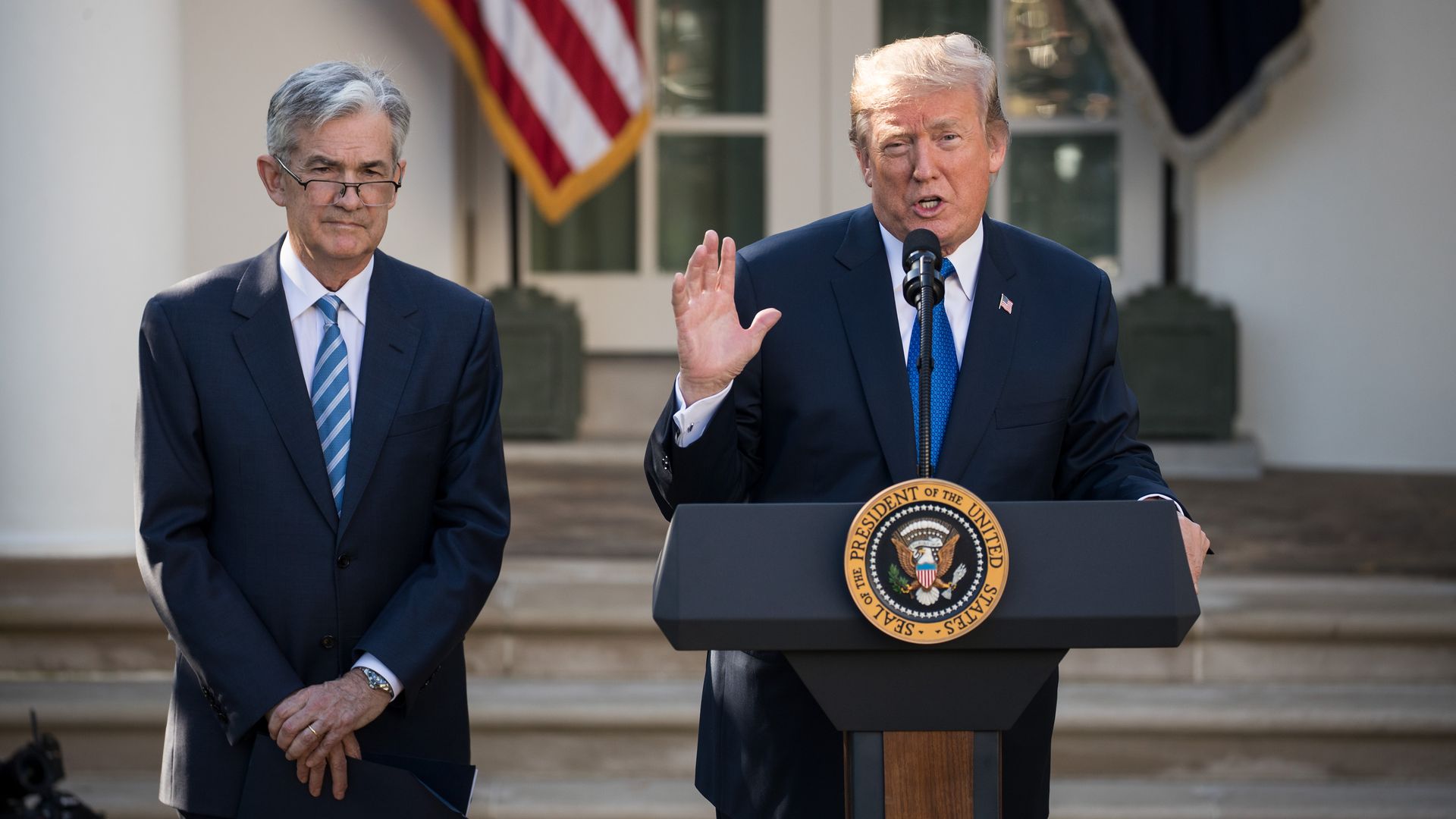Fed tweets show Trump doesn't understand central banking
Add Axios as your preferred source to
see more of our stories on Google.

Trump announces Powell as his Federal Reserve nominee in November 2017. Photo: Drew Angerer/Getty Images)
President Trump's latest tweets have continued a pattern of attacking the Federal Reserve and his handpicked chairman Jerome Powell for months using a mix of half-truths, mischaracterizations and hyperbolic fantasies, such as a claim that the stock market would be 10,000 points higher if not for the Fed.
Driving the news: On Wednesday morning, Trump said on Twitter that the Fed "cannot 'mentally' keep up with the competition - other countries. At the G-7 in France, all of the other Leaders were giddy about how low their Interest Costs have gone. Germany is actually “getting paid” to borrow money - ZERO INTEREST PLUS! No Clue Fed!"
Reality check: German government bonds yields and interest rates in Europe are much lower than those in the U.S., but that's because their economies are so weak. Germany's economy shrank in the second quarter, while the U.S. economy grew by 2%. The eurozone economy as a whole grew by 0.2%, about 1/10th the rate of the U.S.
Central banks raise interest rates to hold off inflation and prevent asset bubbles from forming. A major contributor to the 2008 global financial crisis was the bubble in the housing market that made its way through the banking system and burst.
- Trump also has attacked China's central bank for too-low rates, even though the People's Bank of China holds interest rates about twice as high as the U.S.
Between the lines: The president's recent suggestion on Twitter that the Fed lower interest rates by 50-100 basis points "over a fairly short period of time" and add "some quantitative easing" demonstrates further lack of understanding.
- Lowering interest rates that much in a short period of time would signal a massive panic by the Fed and send stocks, bonds and the dollar sharply lower, causing hundreds of billions in losses.
- Quantitative easing is an extreme measure central banks take only in times of severe crisis to jumpstart the economy and forestall a potential recession.
The Fed's job is to reduce unemployment and keep inflation contained. Restarting quantitative easing or introducing European-style negative interest rate policies has the potential to do more harm than good.
